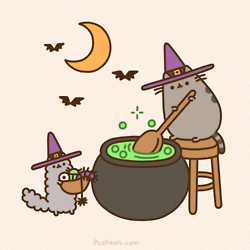By Jaclyn Heng
Disclaimer: All opinions in this article are solely those of the author and may or may not reflect your own views.

It’s October! The spookiest month of the year (at least, if you’re looking at it from a Westernized perspective). Here in Malaysia, Halloween isn’t that big of a thing, really. Aside from scoring tickets to Sunway Lagoon’s annual Nights of Frights and attending dress-up parties, there’s really not much of a Halloween culture here (i.e. trick or treating). But being so exposed to the Western culture of Halloween through social media, many of us know about Western superstitions like jack o’ lanterns, black cats, Friday the 13th and such. In Malaysia, we have our own unique, traditional superstitions from a background of diverse cultures, passed down from generation to generation.
I think I can speak on behalf of every one of us who have grown up in Asian households that we’ve probably all been subjected to our parents’ chastising about pantang larangs* in one way or another throughout our lives. For most of us, we’ve been taught these superstitions and the rules since childhood, much so to the point that we continue practicing those rules without really understanding the reasons behind the existence of such pantang larangs.
* pantang larang: cultural superstitions/taboos
However, being naturally curious, children will start to question those rules and why they have to comply to them. Why do we have to do a certain thing when it doesn’t really make sense? Pantang this. Pantang that. We aren’t provided with a solid reason for the rules we have to follow other than “because pantang”. It’s at this stage that we begin to analyse the situation from a practical viewpoint and challenge the rules we’d been instructed to follow for so many years.
I have questioned the practical aspect of certain superstitious traditions many times and have since come to the conclusion that there are two types of superstitions: the ones based off practical reasons and the ones we follow in fear of the supernatural.
So, what’s the difference?

Growing up, we come to realise that the many traditional superstitions we’ve been taught were actually created for rational purposes. Maybe it was to prevent someone from getting hurt, or even to threaten a misbehaving child into quietude. I remember as a kid, my mom would scold me when I would sing at the dinner table because according to superstition, singing at the dinner table would cause me to “drop my coins”, cursing me to lose all my money when I became an adult. Only after leaving that childhood behind did I realise that she likely only said that because my singing was probably so obnoxious that she had to think of a way to get me to stop because the only other way was the rotan (caning) #asianchildhood.
On the other hand, many superstitions are actually the result of using the common fear of the supernatural world to frighten people into avoiding “dangerous” activities. An example would be the superstition that we are not allowed to cut our nails at night because we would die (vague much?). The true explanation for this particular superstition is that during the olden days when electricity was scarce, there wasn’t sufficient lighting in homes at night, if there was any lighting at all. Hence why people were forbidden from cutting nails at night in fear of them accidentally hurting themselves when cutting in the dark with next to no illumination.
Personally, I think that the practicing of superstitions has to change with time. Many of these so-called dangerous activities have actually become irrelevant in this modern era with the existence of technology. While those certain rules were useful in the past, they may not be applicable now where the problems faced then have been eradicated with technological progress.

On the darker end of the superstition spectrum are the ones we’ve been taught to believe that if we don’t practice them, spiritual entities will bring harm to us or our loved ones. While some of these superstitions may seem as if they don’t make sense, we still adhere to those rules because deep down, there is some part of us that doesn’t completely reject the possibility of the existence of a spiritual world. A superstition I grew up with is the practice of knocking the door before entering any hotel room for the first time. My parents always made sure to do it and as a child, I didn’t understand. Why knock the door if no one’s inside? I would ask. Until now, the reason still sends a chill down my spine: the possibility that “someone” is inside, and in order to not intrude and not disturb that “someone”, we knock before entering. However much I may claim to believe that superstitions are only the product of human fear and culturalism, this is the kind of superstition I would not take the risk of going against in fear of the possibility that it might be true. Better safe than sorry, especially after all the horror stories we’ve heard. When we hear so many recounts of hauntings and possessions, we can hold our nose high and scoff. But when it comes down to truly believing whether or not spirits live alongside us, the possibility of it, however small, instills enough fear in us to comply with the “rules” nonetheless.

Now comes the cultural dilemma: Do we continue keeping up with traditions and superstitions to keep the culture alive? Or do we keep with the times and abolish traditions that don’t apply to today’s day and age?
In my personal opinion, traditional practices should be retained for future generations because it is something that is unique to each culture and ensures diversity among the people. But a balance has to be struck. Superstitions that are irrelevant should not have a place in modern society where they simply exist to reinforce conservative mindsets that will be unable to live in modernity. Even more so for superstitions that are troublesome or requires followers to have to live unhappily or in fear. As for the the superstitions meant to appease the spiritual world, well, challenge them at your own risk.
There’s also another category of superstitions surrounding the topic of death and the afterworld, but that’s another story for another day.




